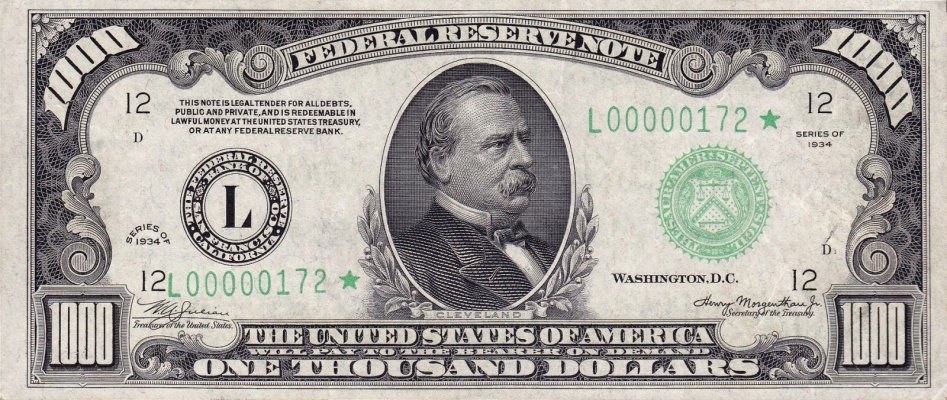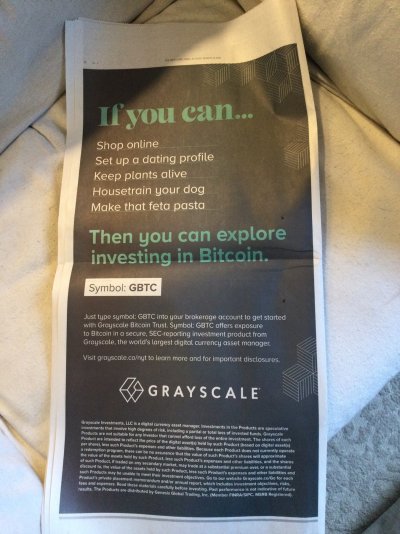37andhappy
Recycles dryer sheets
- Joined
- Jun 24, 2008
- Messages
- 187
I'm not sure understanding the nature of bitcoin is as important as accepting the fact that it has become an investable asset. I see value in it and am happy to add it to my portfolio of individual stocks, funds, bonds, real estate and cash. No precious metals for me. I suppose I'm with the under 30 crowd when thinking about store of value. So far my BTC has multiplied in value by a factor of 5+ and in the process took over about 15% of my net worth. It's the money I can lose. So that's the investor thinking.
As a political animal I love BTC for its anticensorship features, for the fact that (as long as it has value) it's the best bearer asset you can posses, that's it's completely decentralized and that its value - while volatile - it's mathematically, rather than situationally assessed.
Nobody can prevent you from owning BTC and transacting in it. As long as there is another party interested in it, no government, bank, credit card or financial processing company can stop you from trading BTC. A good example of when that became important was when Wikileaks was cut off from the traditional financial system.
While gold and cash are bearer assets, they are hard to store and transport in larger quantities. BTC - regardless of the amount and being just piece of code on the blockchain, can be literally stored on a piece of paper or in your head (if you memorize your private key - basically 24 random words). And given that this key can be instantly transferred across the world, the transportability of BTC beats everything else (I suppose we are all aware that bank deposits and stocks are not bearer assets).
Decentralized nature of BTC prevents it from arbitrary changes to its protocol. In other words there's no one entity that can suddenly decide to add 20 more million of coins to the original pre-set amount. And debase it in the process. There have been so called 51% attacks on BTC in the past (that's when majority of BTC miners and holders try to take over the protocol) but all have failed. Mostly because the minority was able to fend them off. I look at BTC as "money by the people for the people" - as opposed to a method of controlling world's politics.
As to assessing BTC value mathematically and why it's important. During one of the previous crisis in Argentina, people tried to exchange their gold to USDs but the buyers refused to accept any items at their original carat value (citing volatile situation as a reason) and instead decided that all gold would be only accepted at 15 carats. BTC will be subjected to market forces but not to the additional whims of history.
So that's how I look at BTC in 2021. Is it possible that things will be different in the future? Obviously. "Past performance does not guarantee etc." But in the meantime I really enjoy the ride
100% agree!


